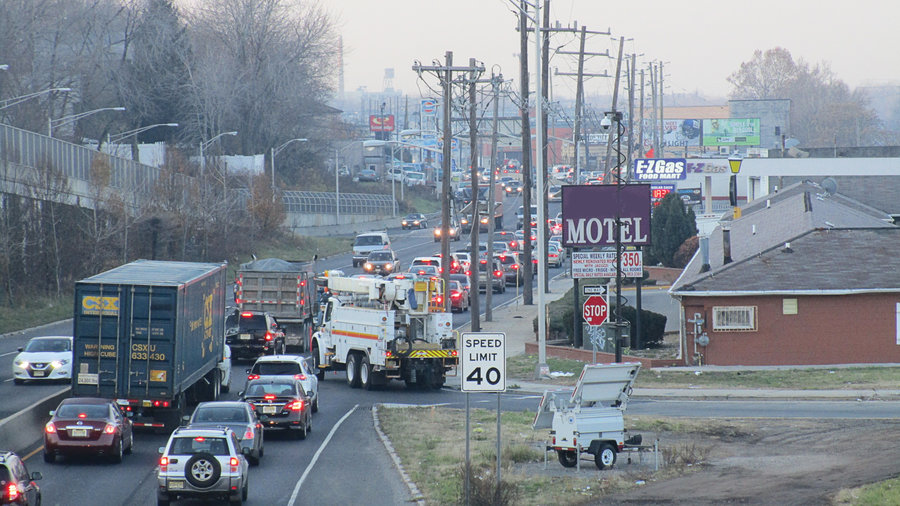Despite a report revealing rats and cockroaches at motels where Hudson County welfare officials temporarily house people made homeless by economics, fires, or disasters, the Board of Freeholders has voted to pay more than $170,000 in bills to them. However, the county has not had contracts with the motels since 2013.
Robert Knapp, deputy director of the county Welfare Department, said various county departments issued vouchers to clients who needed housing. He said no one checked to see if there was authorization from the freeholders, who must approve expenditures this large.
A $52,979 bill for 2013 raised questions from the freeholders, who asked why the county was being asked to pay the bill so late. A second resolution covering 2014 and 2015 totaled $117,420. Freeholder Bill O’Dea said these costs far exceed the state-mandated threshold that requires expenditures over $17,500 be advertised for competitive bids.
County Administrator Abe Antun said the county discovered the voucher problem when it switched methods of paying. He said a new system is being implemented that would require approval for payment through the county administration. In the past, departments simply issued vouchers and the motel owners turned them into the county finance department for payment. Antun said the county has discontinued that system.
“These motels are hellholes.” – Freeholder Bill O’Dea
____________
“We were very involved in the program helping those who were victims of the storm,” Knapp said. “Since then, we’ve corrected our record keeping and established oversight concerning hotel and motels.”
An accounting issue
County Counsel Donato Battista said payment to the motels was based purely on the vouchers, which were not approved by the freeholders prior to this week. He called it “quasi-legal” or “an implied contract.”
“The new system requires requisitions and a resolution with a contract officially acted upon by the freeholder board,” Antun said. “Going forward, this should not be a problem.”
O’Dea, however, said this comes after the county uncovered unhealthy conditions at the motels used, including large rats and large cockroaches. He asked, lacking a bidding process, how were the sites selected. “How do you know what we’re paying is the lowest price?”
Knapp said the price is fixed by the state.
Antun said a motel on Tonnelle Avenue in Jersey City is currently the only place in Hudson County that will accept welfare clients sent by the county. Knapp said in the past welfare officials looked for other motels in Secaucus, Jersey City, and North Bergen. But nearly all of these are owned by a single corporation that has refused to take welfare and other clients from the county.
For a time, he said, a motel on the Bayonne/Jersey City border took welfare clients, but has since refused to accept them.
Problems at local motels
The county is also using motels along Route 1 & 9 in Linden, but O’Dea said even the motel in Jersey City is extremely remote for people who live in the far reaches of Hudson County.
“If you’re on Tonnelle, and you have a kid in going to school in Greenville, that kid is not going to get there,” O’Dea said.
Daria (not her real name) from Bayonne said this was a huge issue for her when she stayed at a Jersey City motel in 2013, before she found more permanent housing at a family shelter.
She made separate arrangements for her daughter to stay with another family in Bayonne so as to be able to get to school on time.
“I didn’t want my daughter sleeping in that motel,” she said.
Not only were there rats and roaches, but she said she never felt safe, and didn’t want her daughter to feel afraid.
“These motels are hellholes,” O’Dea said. “Last summer, someone was brave enough to give us photos of the rats and roaches there. We would not allow homeless shelters to have such deplorable conditions. Inspections have verified these claims.”
In asking for a report on the financing as well as the conditions of the motels, O’Dea wanted to know which inspections these places must undergo. Knapp said inspections of these short term facilities are done by the state Department of Community Affairs.
“It is their jurisdiction and responsibility to inspect,” Knapp said. “The local health departments share that jurisdiction. We did work with the Jersey City health department to correct many areas.”
Newark YMCA will house long term clients
Based on some of the complaints from last summer, O’Dea helped find a new facility for long term clients. The freeholders voted on a contract with the Newark YMCA for the long term housing of displaced families and individuals that will start on Jan. 1, 2016.
O’Dea said he toured the facility and praised the conditions, saying the YMCA provided a clean and healthy environment and services to those that stayed there that did not exist in the motel setting.
“They have individuals there to provide support services,” O’Dea said, noting the YMCA is a non-profit entity and that the state will pay the costs directly to the YMCA for long term housing.
“We should be using this for short term as well as long term housing,” he said. “This would include fire victims and others who need family services.”
But until an agreement for short term clients can be worked out, the county will continue to use local motels.
Knapp said Hudson County has a homeless hotline that operates 24 hours a day.
“Most families that are placed in the motel on Tonnelle are on an emergency basis or weekend,” Knapp said. “Some have remained in the motel, but then they are sent to county welfare for services.”
Freeholder Chairman Junior Maldonado said he wants to pursue a possible Newark solution to the problem, but also asked for a report to see what happened over the last three years, and how the county proposes move ahead in the future.
Al Sullivan may be reached at asullivan@hudsonreporter.com.
